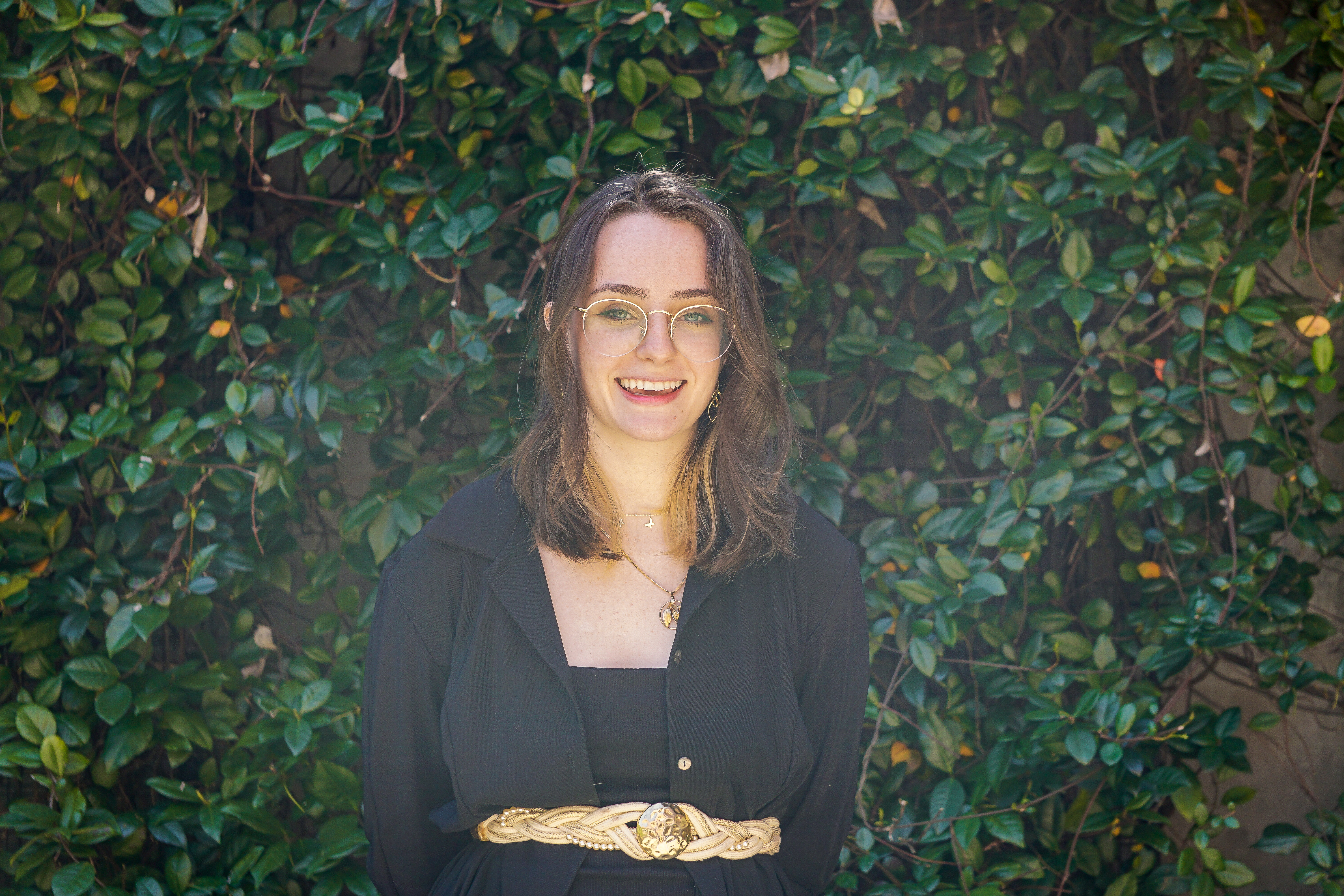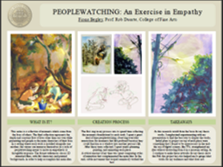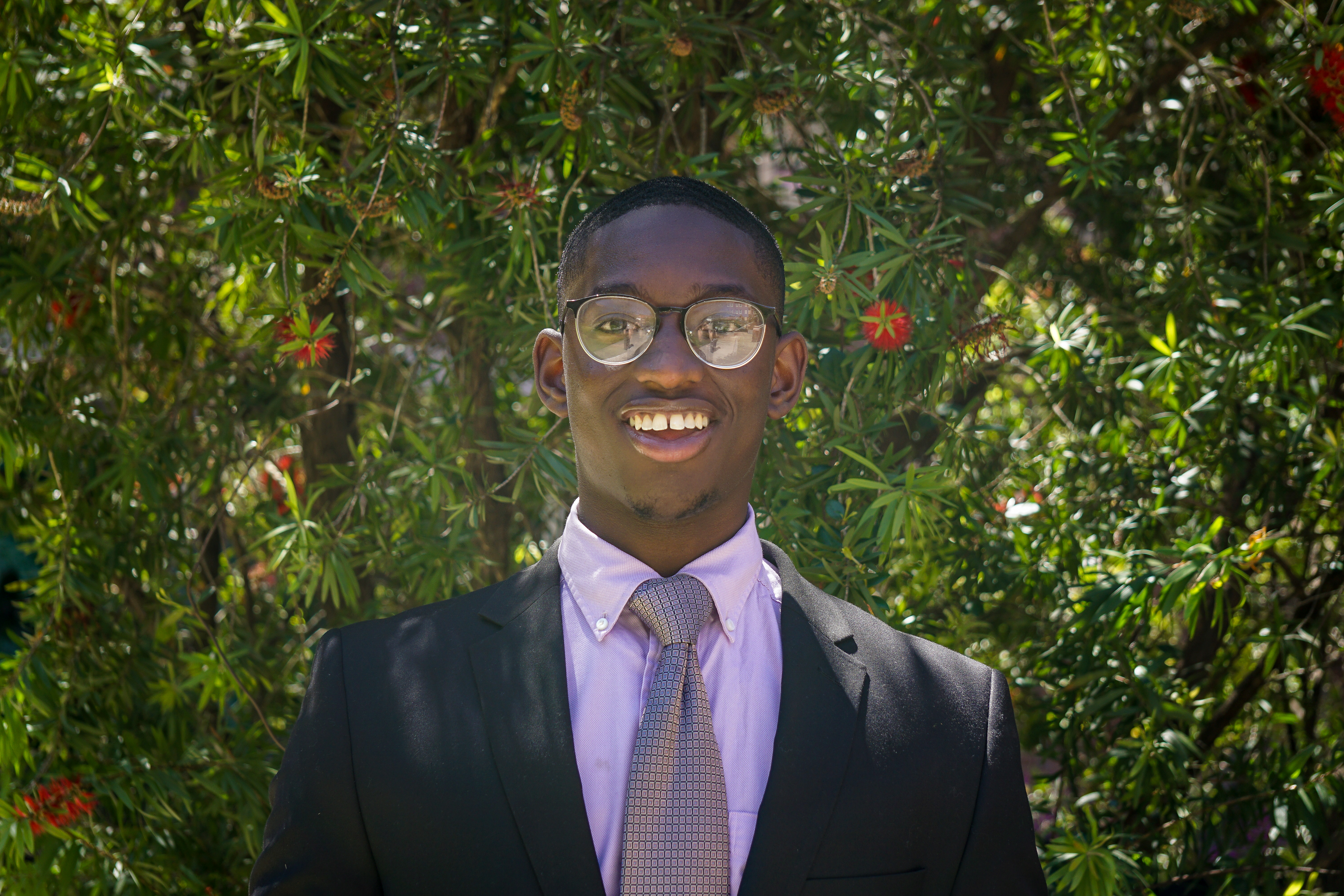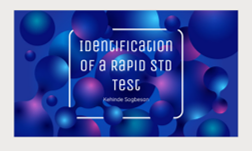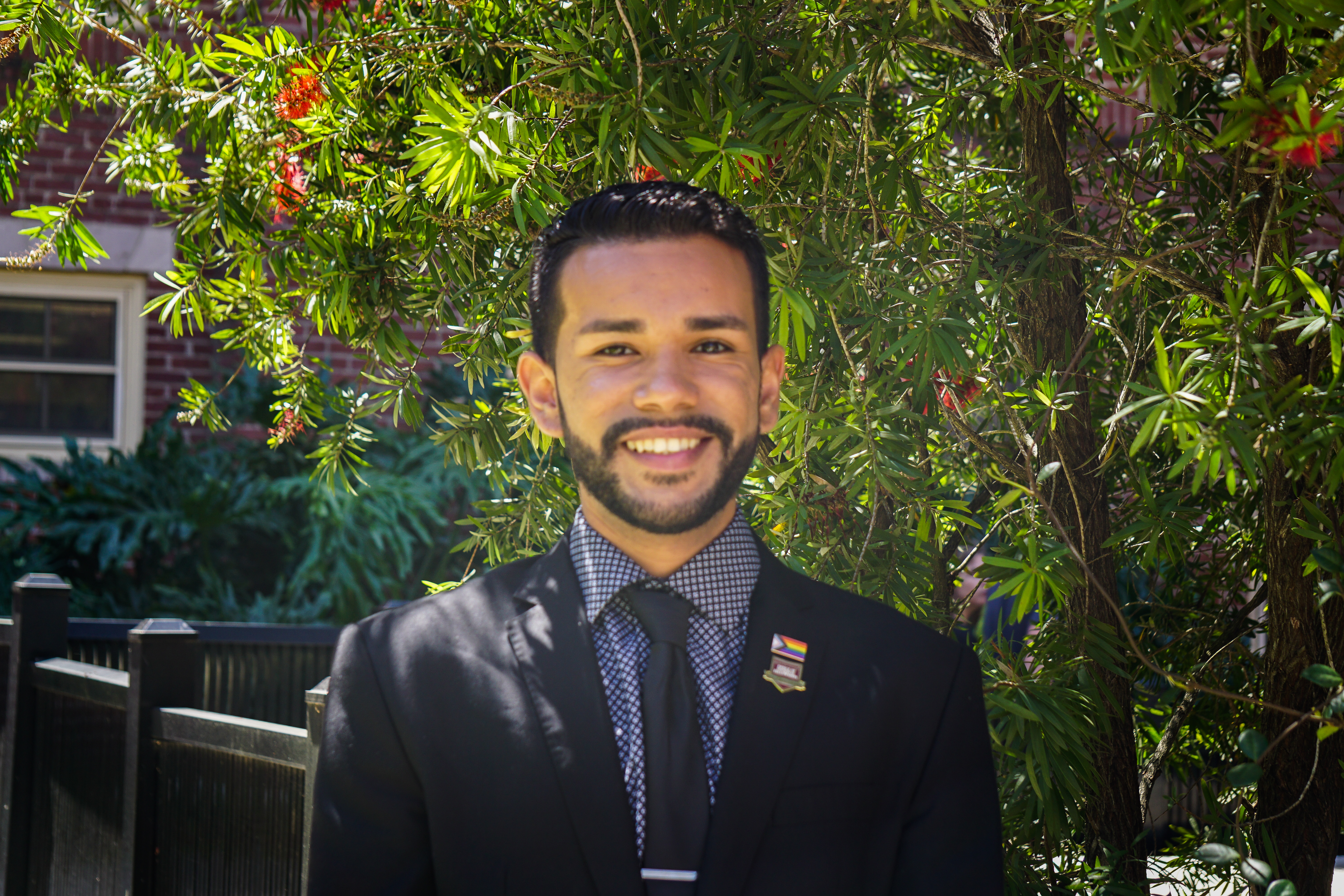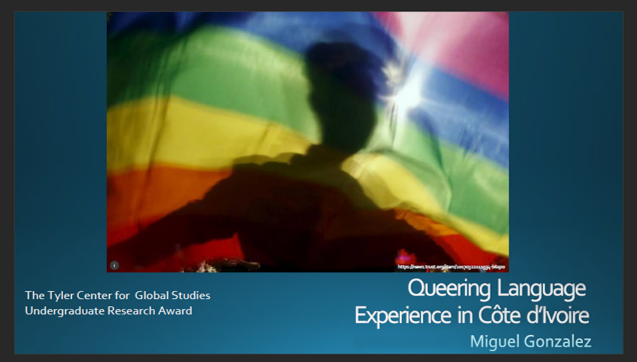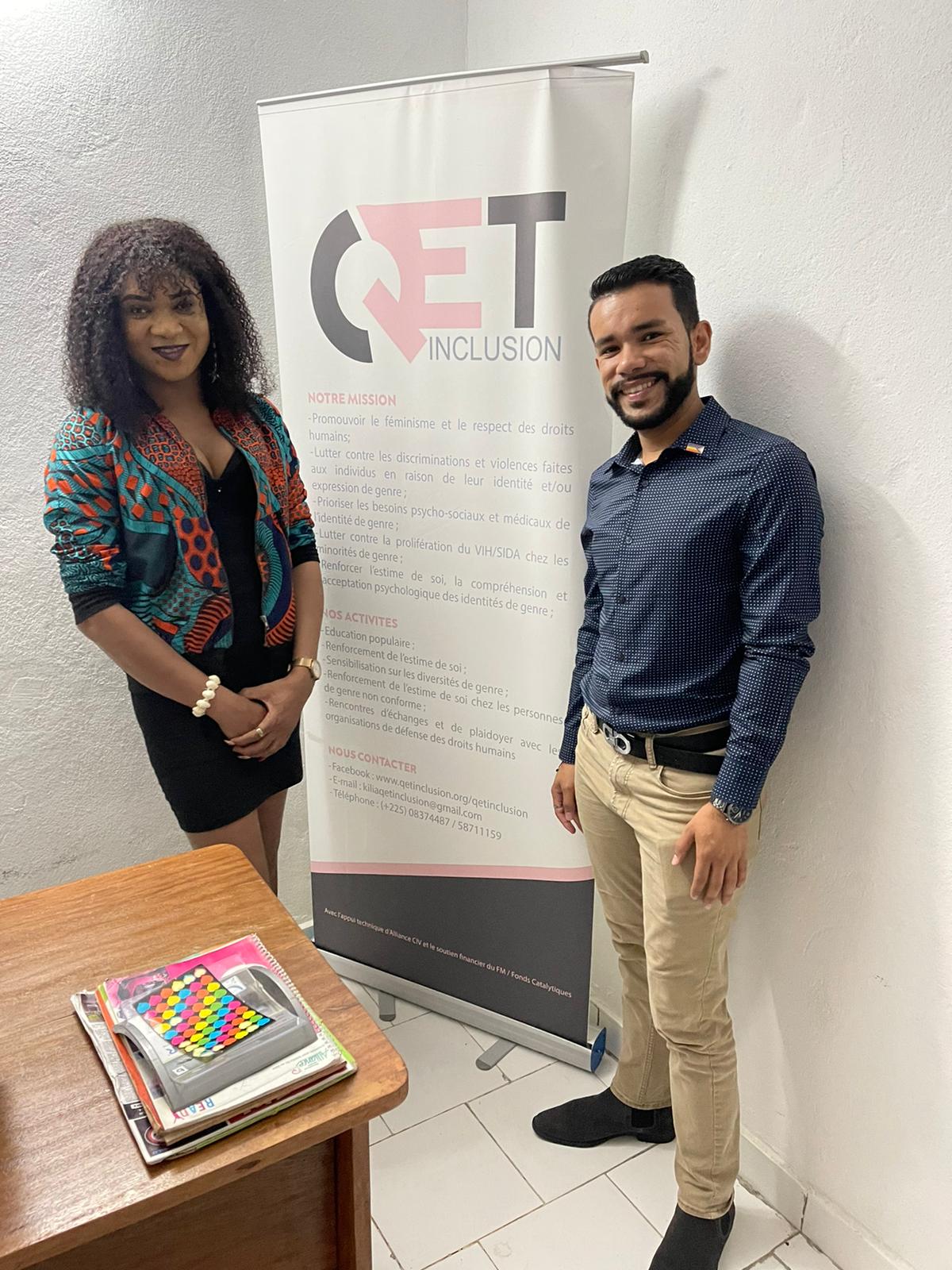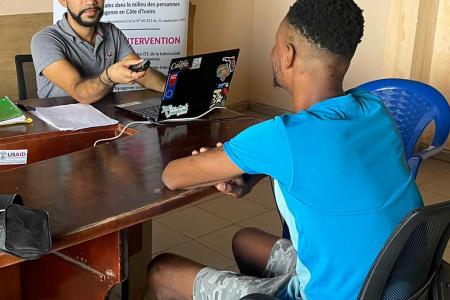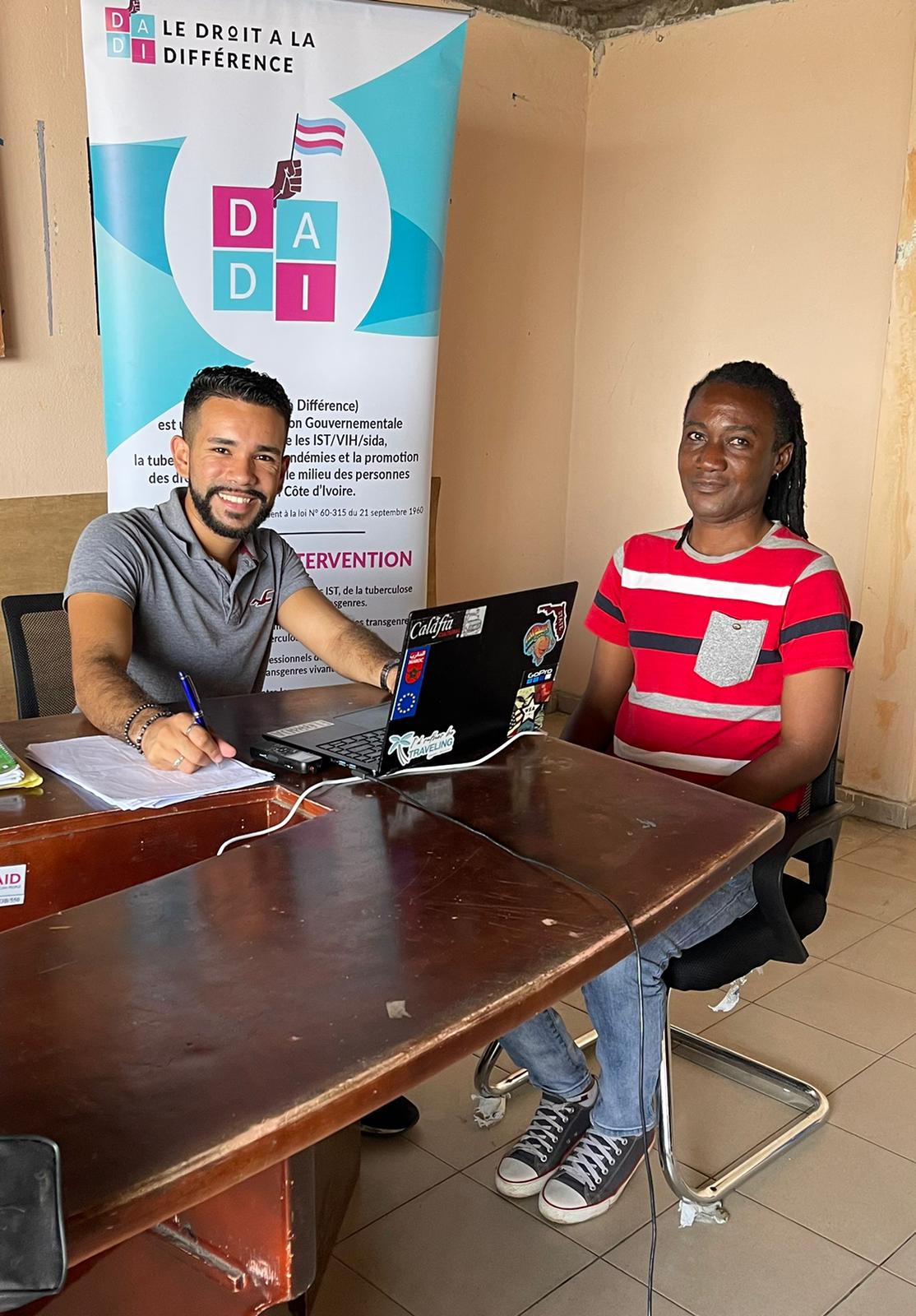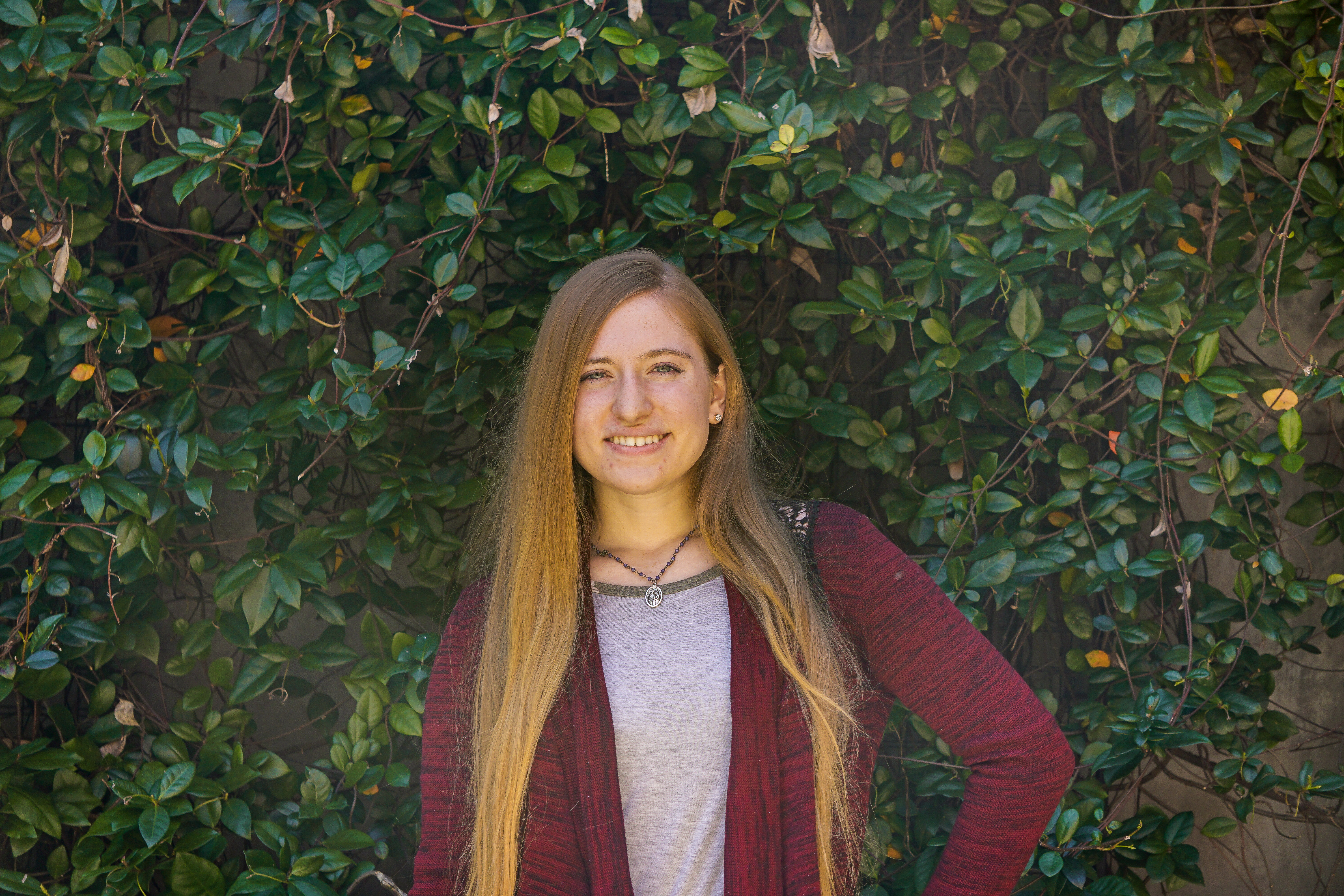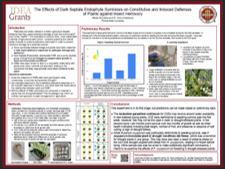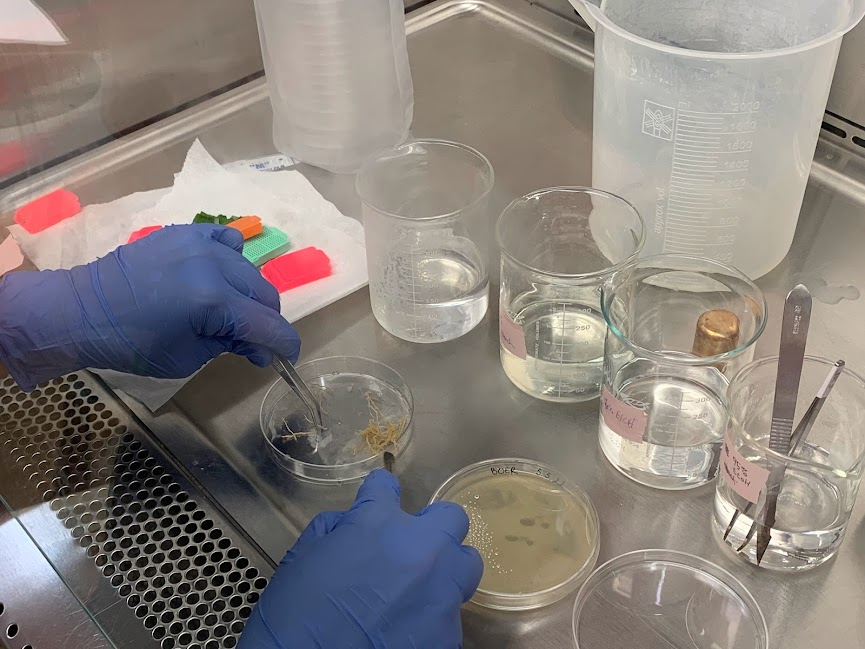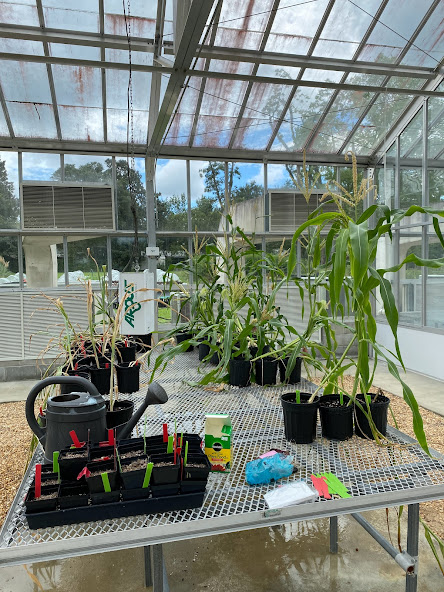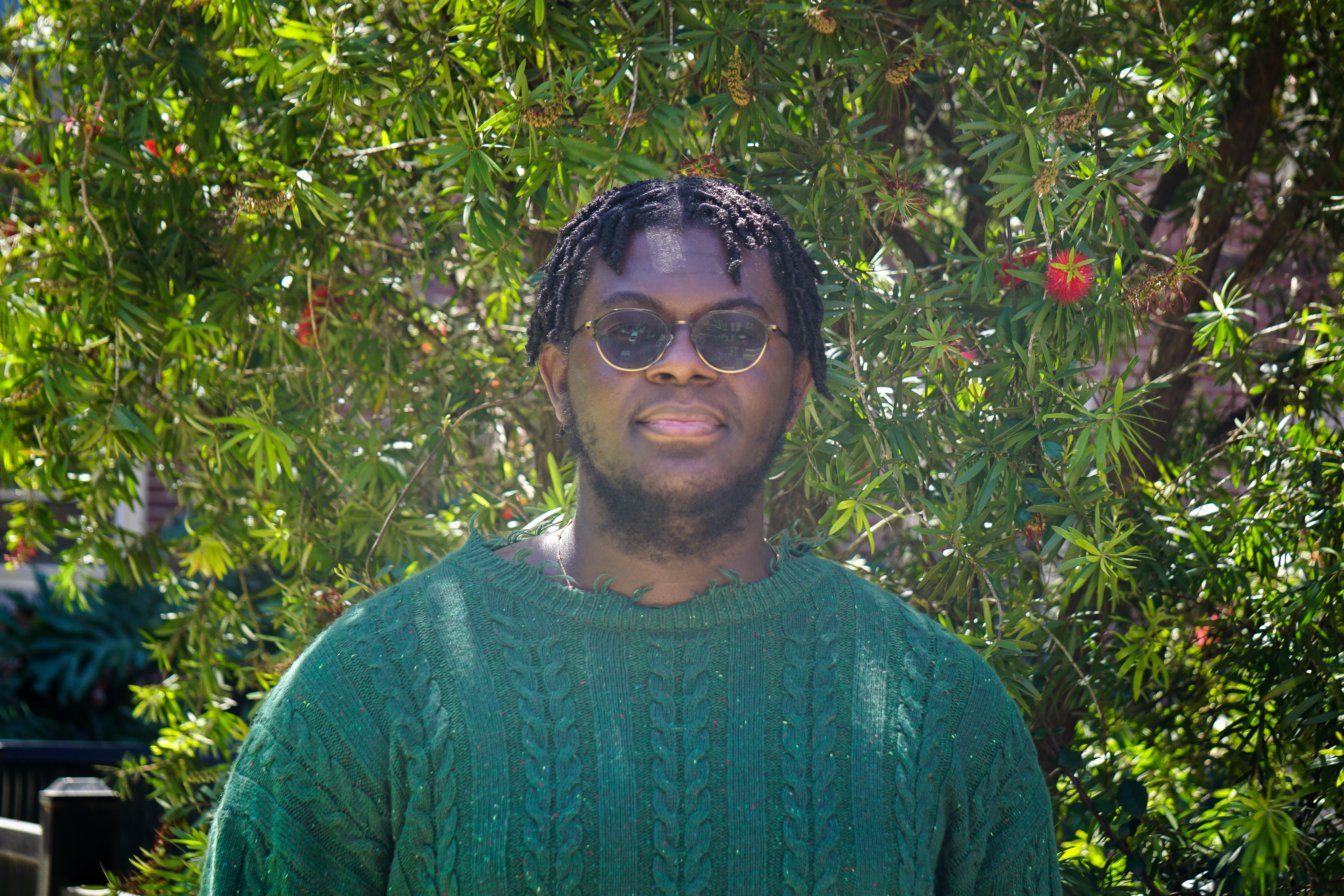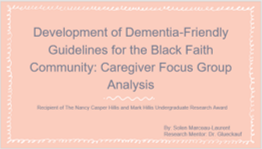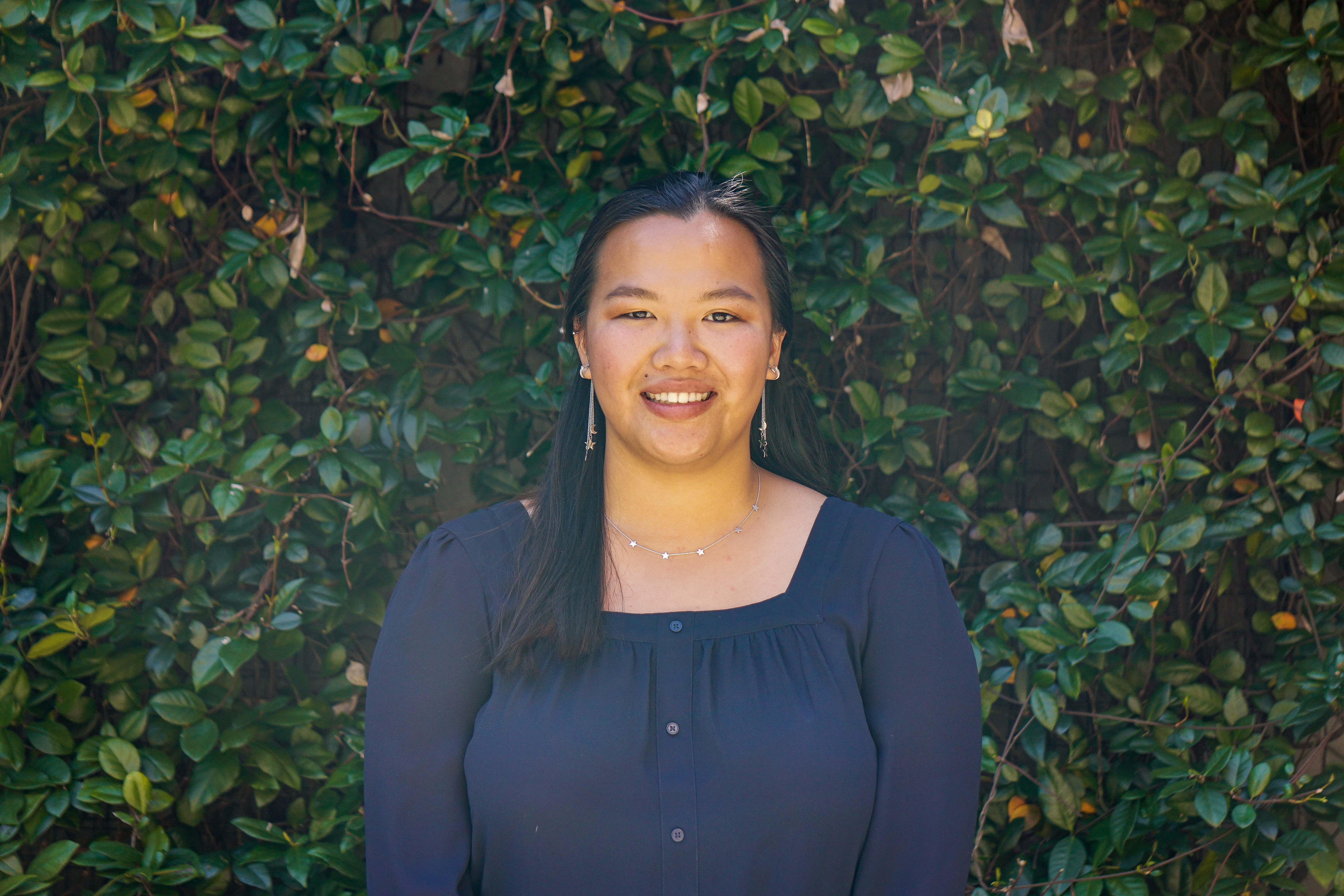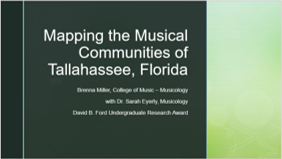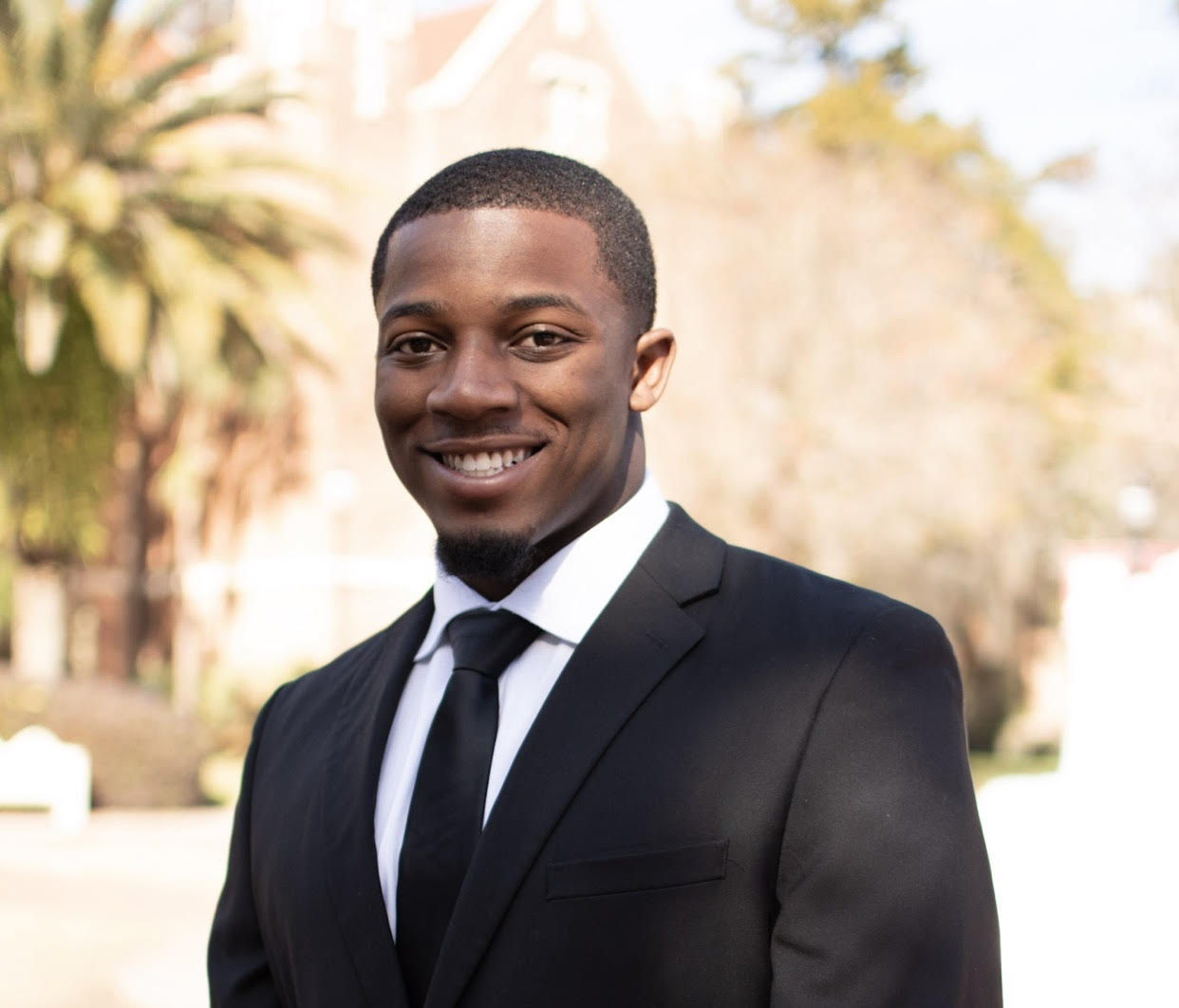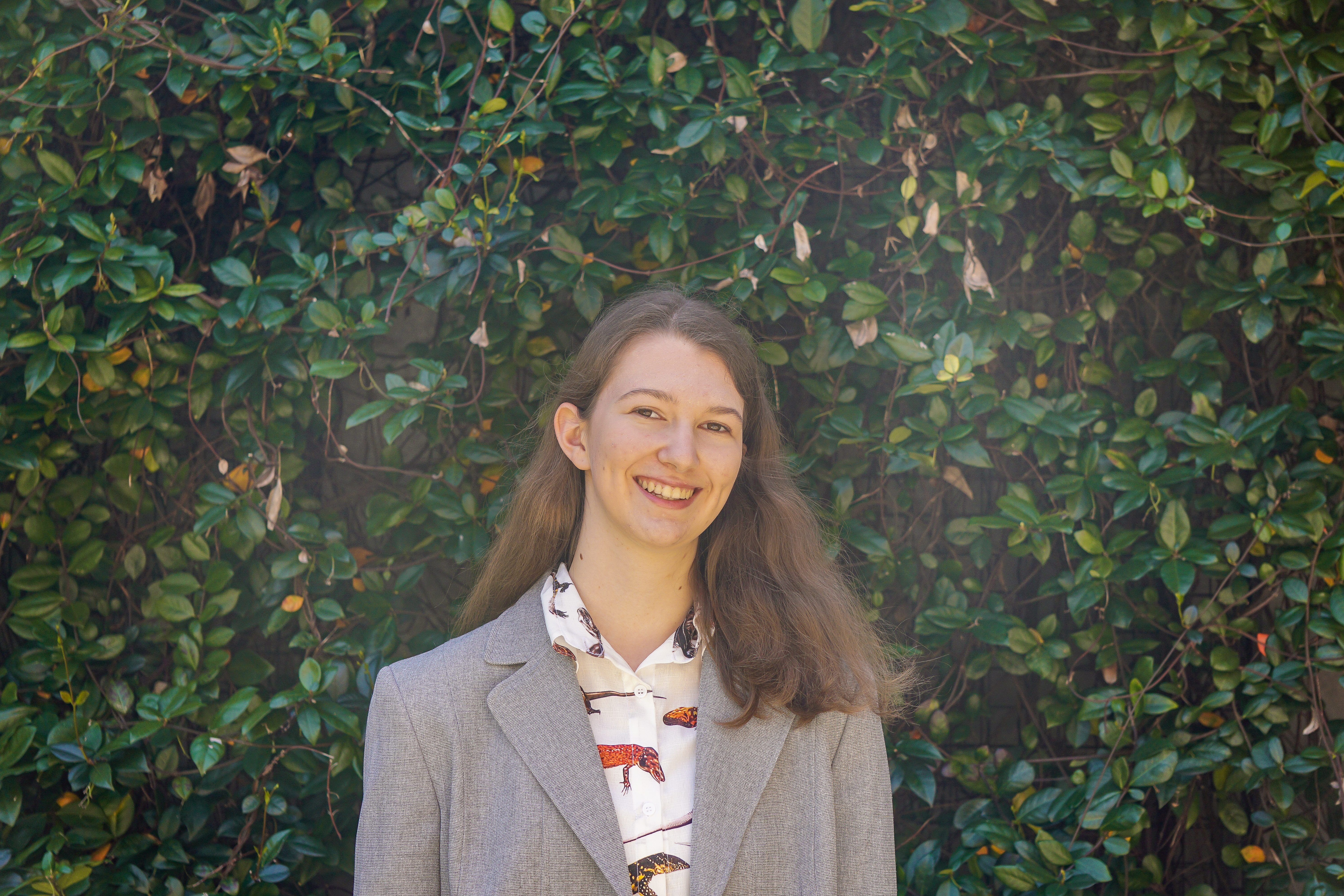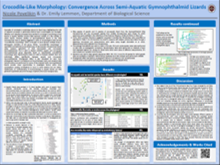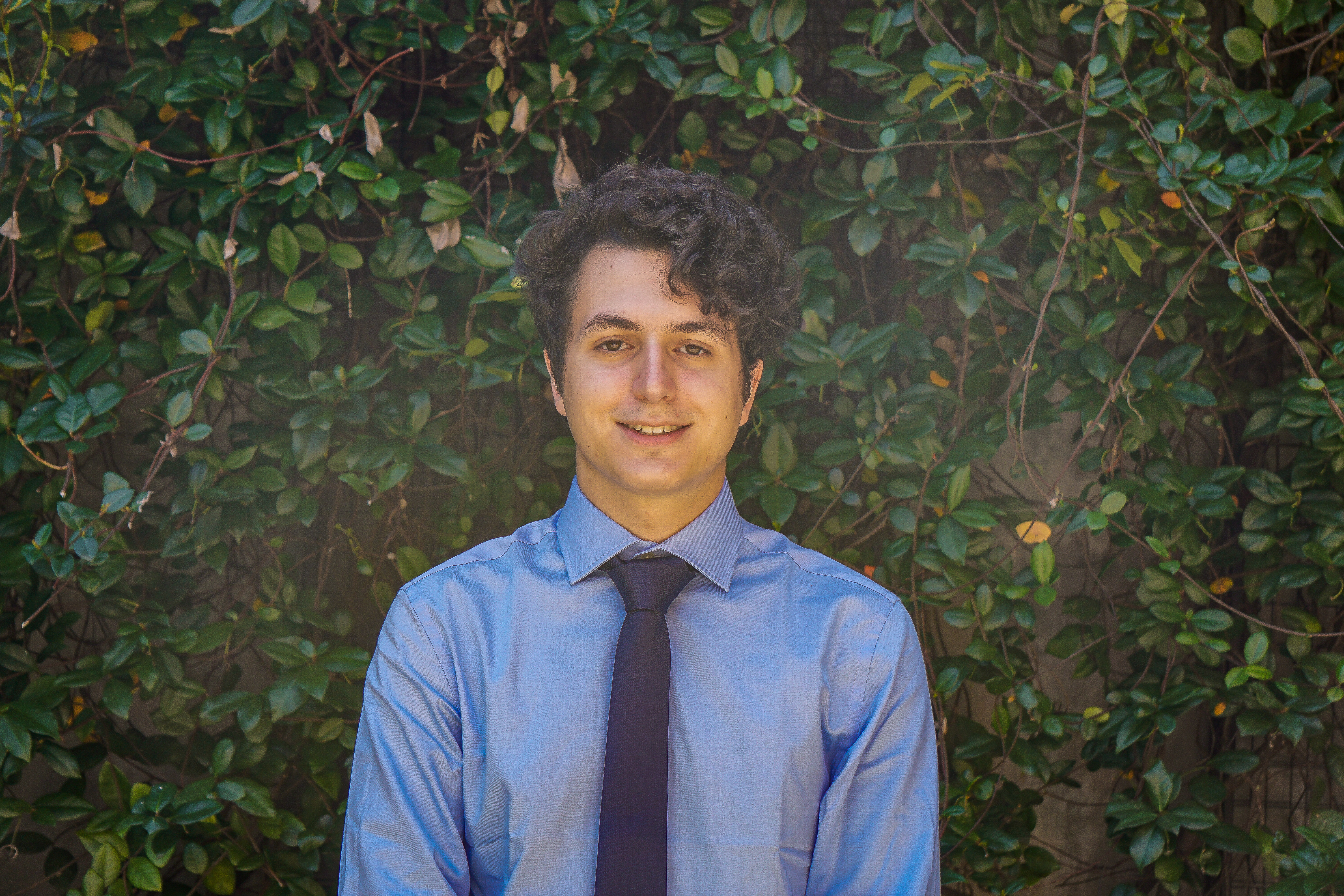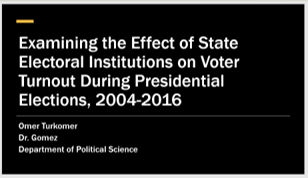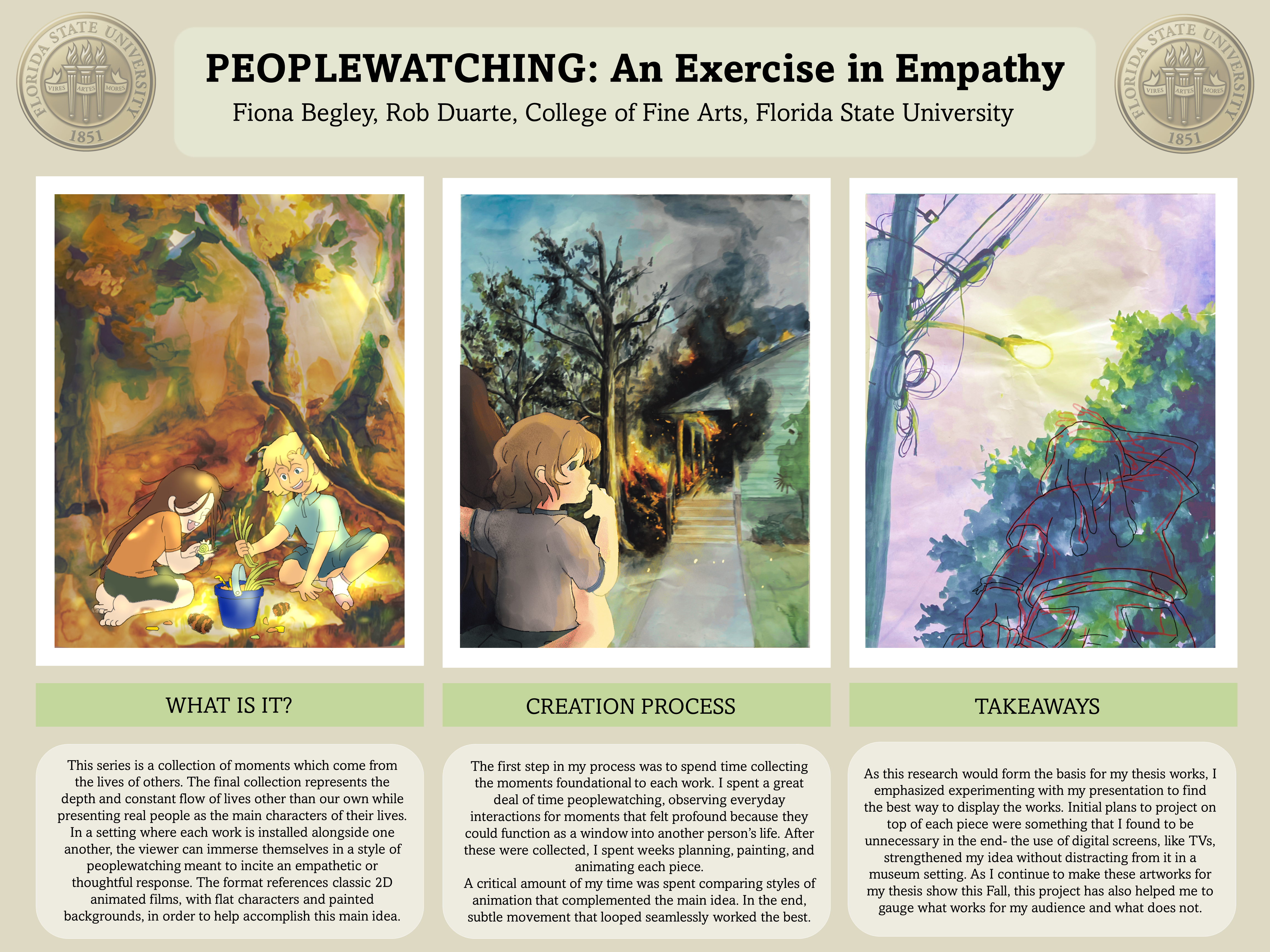President's Showcase
Fiona Begley They/Them
Supervising Professor: Prof. Rob Duarte
Fiona Begley is a multidisciplinary artist and senior Bachelor of Fine Arts candidate at Florida State University. Blending both digital media and paintings, Fiona’s works emphasize the significance of everyday interactions and empathy. After completing their thesis show and graduating this fall, they plan on attending graduate school to further their artistic research while pursuing a career in education.
Abstract
In modern society, emphasis on individualism has had a noticeable negative effect on the way the public perceives and reacts to the plights of others. The ability to connect empathetically is a critical part of our lives, one which promotes cooperation, compassion, and action. Peoplewatching: An Exercise in Empathy is a series of animated works meant to promote empathetic thought processes in viewers. In an effort to mirror the way in which motion pictures can generate feelings of understanding for those who may be unfamiliar to the audience, this series casts a spotlight onto everyday people as they go on with their daily lives. Framing these people as the main characters of each moment, Peoplewatching utilizes the familiarity of animated storytelling formats with novel visual perspectives to build viewers’ empathetic response.
Presentation Materials
Project Materials
Project Documents and Links
Kehinde Sogbesan he/him/his
Supervising Professor: Dr. Jeff Whalen
First-generation, Nigerian American, brother, and son, Kehinde Sogbesan is a scholar on the path to revolutionize our society and the world around it. Originally from Jacksonville, Fl, the Biotech in STEM Entrepreneurship student longed to innovate a product that will help disenfranchised communities. His passion for research and product development began at interning at Mayo Clinic during the COVID-19 pandemic. Under the mentorship of Dr. Nassar he learned of new detection methods to SARS-CoV-2 via saliva. Combining scientific discovery with empathy, he devised hypothetical intervention methods to aid minority communities negatively impacted by contact tracing. His love for research began here and inspired him to continue as he returned to Florida State University.
“The Summer of Fulfilment” was what Kehinde named the summer of 2022. He believes the power of the tongue led him here. In his words, “It is not by my strength but rather God’s Grace that has allotted me the opportunity to fulfil my dreams”.
Abstract
As the rise of sexually transmitted diseases continues, the need to find effective solutions remains paramount. Cheaper and faster detection serves to diminish the alarming rate and ensure earlier intervention. However, the process to monitor testing remains difficult, as nations worldwide continue to suffer from this epidemic of STDs. As a result, many researchers have explored the creation of point-of-care tests and self-administered tests. Chlamydia trachomatis and Neisseria gonorrhoeae are the most common STDs in the world, yet a rapid urine POC test does not exist. Our study utilizes ELISA technology to initiate the early developments of a lateral flow device that can accurately detect Chlamydia trachomatis and Neisseria gonorrhoeae. We identified the most abundant proteins in the two bacterial infections: the major outer membrane protein. The researcher then found matching monoclonal and polyclonal antibodies to create an ELISA assay. Each of the two assays contained nine different antibodies and conjugate combinations to decipher the best detection combination. In collaboration with Biofront Technologies, we were able to see distinct pairing for the chlamydia assay and indistinct pairing for the gonorrhea assay. From an entrepreneurial lens, data was extracted to learn of advancements in point-of-care tests, current competitors’ market strategies, and ongoing legislation. In combination with interviewing health clinics and institutions, the researcher was able to create a market strategy that will benefit disenfranchised communities, minorities, and college students. The scientific findings coupled with the entrepreneurial data aids in creating a revolutionary LFD that will aid in ending this epidemic.
Presentation Materials
Project Materials
Project Documents and Links
Miguel Gonzalez He/Him/His
Supervising Professor: Dr. Joseph Hellweg
Miguel Gonzalez was born in Miami, of a Colombian mother and a Cuban refugee father. He grew up spending time in all three countries and attended Westland Hialeah Senior High School, where he was president of the Queer Student Union and competed on the swimming and water polo teams. He is a senior at FSU, pursuing a BA in international affairs, concentrating in modern languages. He serves as the French Club’s vice president and tutors students in elementary French. Miguel has volunteered to help students learn English as a second language at the “American Space,” of the US Embassy, at Félix Houphouët-Boigny University in Côte d’Ivoire, and at FSU’s Center for intensive English Studies. He is fluent in French, Italian, Portuguese, and Spanish. He is currently an undergraduate honors-in-the-major thesis candidate working with Dr. Joseph Hellweg, a cultural anthropologist, West Africanist, and Associate Professor of Religion. Following graduation, he will seek a master's degree in international affairs to become a diplomat.
Abstract
To gather data for my thesis, I spent eight weeks among Queer communities in Abidjan, Côte d’Ivoire, a city of over four million people in West Africa. I completed my research under the additional guidance of Dr. Jacques N’goran Kouakou, a sociolinguist at the Institute of Applied Linguistics at Félix Houphouët-Boigny University and with the approval of Dr. Jean-Martial Kouamé, the Institute’s director. Through my research, I developed a basic lexicon of Queer vocabulary, called Woubikan, used by Queer Ivorians to talk about their lives without straight people understanding them. As I did so, I also undertook an ethnography of Queer life in Abidjan, a city that offers relative freedom for LGBT West Africans. My Woubikan lexicon of 160 words and thirty phrases gave me insights into how Queer Ivorians resist homo- and transphobia. Through Prof. Hellweg’s colleague, Igor Coffi, I also contacted several Queer Ivorian NGOs, including ONG DADI, ONG Katia, Organisation Jovial, and Qet Inclusion. I then undertook fourteen hours of semi-structured, focused life-history interviews with my contacts as well as additional focus groups, asking interviewees about the struggles and triumphs of their professional, religious, and romantic lives.
Presentation Materials
Project Documents and Links
Marley Shouldice She/her/hers
Supervising Professor: Dr. Nora Underwood
Marley Shouldice is a Senior majoring in Biological Science. Her research interests include plant-insect ecology, soil science, and mycology. She is conducting research in the Underwood-Inouye Lab as part of an Honors in the Major project, alongside working as a laboratory technician. Marley also serves as the Vice President of the FSU SEEDS (Strategies for Ecology Education, Diversity, and Sustainability) Chapter, which is a student organization dedicated to promoting diversity in the field, educating students about opportunities in ecology, and appreciating local ecosystems. Marley aims to use her research to explore the potential uses of natural ecological associations such as those between fungi and plants to maximize agricultural productivity, particularly in nutrient-poor or drought-prone regions. She plans on pursuing a graduate degree in plant-insect ecology or soil science after graduating.
Abstract
The use of pesticides in modern agriculture is ineffective and hazardous to the health of humans who consume treated crops. It also poses a major threat to the environment, as pesticides threaten biodiversity in soil and contaminate waterways. It is crucial to seek out more sustainable alternatives to agricultural pest management. It is known that plants have natural chemical defenses to protect themselves from insects, and that an association between plants and fungi may have the potential to alter these defensive capabilities. I investigated the effects of a poorly studied group of fungi, dark septate endophytes (abbreviated DSEs), given that they are hypothesized to modify the defensive responses of plants against pathogen damage and herbivory and may also support plant growth in drought conditions. I used two dark septate endophytes in my investigation: Periconia macrospinosa and Darksidea. Corn (Zea mays) was used as the plant species given that the fungi were both isolated from wild grasses, and corn is in the same botanical family as grass (Poaceae). My research addresses three questions: (1) Does the presence of dark septate endophytes alter plant defensive responses to damage caused by insects? (2) Are these changes observed in the constitutive response or in the induced response, and what does this reveal about the relationship between plant and DSE? (3) Will the effects of dark septate endophyte colonization be enhanced or lowered in plants that are drought-stressed? This knowledge may help inform an entirely new approach to pest management in agriculture.
Presentation Materials
Project Documents and Links
Solén Marceau-Laurent He/They
Supervising Professor: Dr. Robert Glueckauf
Solén is a fourth-year student majoring in Behavioral Neuroscience. He has been a research assistant with the ACTS2 program at FSU College of Medicine and participated in the Undergraduate Research Opportunity Program (UROP). He has completed an Honors Thesis on the cellular mechanisms of ketamine addiction. Following their undergraduate degree, Solén plans to obtain a Ph.D. in Neuroscience.
Abstract
Research has shown that African Americans are twice as likely as non-Hispanic Whites to develop Alzheimer's disease and related dementias. Dementia not only compromises the quality of life of persons with the condition, but their caregivers also are likely to experience negative health impacts. Black caregivers face numerous challenges in assisting family members with dementia, and they spend a significantly greater proportion of their time in demanding care activities than non-Hispanic White caregivers. Research has shown Black dementia caregivers are at substantial risk for depression and compromised physical health. Stress management programs have improved emotional distress and physical health in dementia caregivers. However, such programs have not been responsive to Black caregivers' cultural preferences, beliefs, and values. Previous research has shown Black adults were twice as likely as non-Hispanic Whites to seek assistance from church ministries when they had mental health problems. However, most Black faith communities (e.g., churches) have not been equipped to address the needs and concerns of congregants with dementia and caregivers. Hence, the ACTS2 Project decided to develop guidelines to enhance the direct involvement and support of Black caregivers and their loved ones with dementia in the Black faith community. My study focused on conducting a focus group with dementia caregivers to assess their experiences and recommendations. The caregiver focus group discussion will be content analyzed and used in creating a guidebook to foster a dementia-friendly environment for persons with dementia and their care partners in African-American faith communities.
Presentation Materials
Project Materials
Project Documents and Links
Brenna Miller she/her
Supervising Professor: Dr. Sarah Eyerly
Brenna Miller is a fourth-year undergraduate student at Florida State University. She is pursuing a Bachelor of Music in Woodwind Performance and a Bachelor of Arts in Editing, Writing, and Media. Her research focuses on mapping the spatial relationships between musical groups and city geography in the digital humanities. Brenna plans to pursue a Masters and ultimately a Ph.D. in Musicology to continue studying the intersection of community, music, and physical space. She hopes to one day work on public musicology projects to bring research to communities that have a need for these projects.
Abstract
Music tells the story of the human condition and gives historians a glimpse into the past in the space between notes and through the staves on sheet music. Buildings and boundaries do the same by restricting people, and their music, to certain spaces based on characteristics like race, gender, and sexuality. This digital project seeks to understand music as a window to the past and a vehicle to the future by asking what the musical geography of Tallahassee can tell us about the city’s history. By utilizing a variety of research methodologies such as interviews, archival research, and ethnography, this project reflects on the past while also looking toward the future of music in Tallahassee. In addition to fieldwork, this website will present the history of Tallahassee’s diverse musical communities to local audiences through digital storytelling, sound recording, and geospatial mapping. This project will also serve as a database for current and future musicians to preserve the history of the diverse music and folk traditions in Tallahassee. Using Omeka and Neatline, this website will host different maps that contain a variety of resources to tell the stories of different music communities across the city, some going back decades and others going back centuries.
Presentation Materials
Project Materials
Project Documents and Links
Daylyn Randolph He/Him/His
Supervising Professor: Dave Montez
Daylyn L. Randolph is from Merritt Island, FL, is a third-year student majoring in Business Finance and Management. At Florida State, he is involved in the Center for Academic Retention and Enhancement (CARE), Student Government Association, and Alpha Phi Alpha Fraternity Incorporated. During the Summer 2022 semester, Daylyn interned with Tampa Bay WaVe, a business incubator, as part of the FSU Tech Fellows program. He has also interned with Capital City Bank in their Credit Administration division.
Abstract
The focus of this project is to better understand how Pell grant receiving first-generation college students perceive entrepreneurship as a career and how Florida State University might support them in pursuing the starting of their own business. As the first member of their family to attend college, these students are often “feeling unprepared academically and social-emotionally for college life” (Minicozzi and Roda). Higher education systems are motivating more and more students to gain entrepreneurial thinking skills in tandem with promoting entrepreneurship itself. The perception of low-income first generations about entrepreneurship differs from that of their peers. Therefore, this underrepresented population requires additional support and resources. A series of focus groups were conducted in cooperation with Florida State's Center for Academic Retention and Enhancement (CARE) with Pell grant receiving first-generation college students to inform university administrators of their perspectives toward the development of effective programming.

